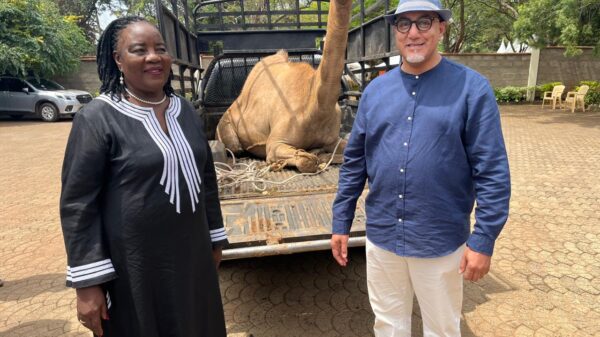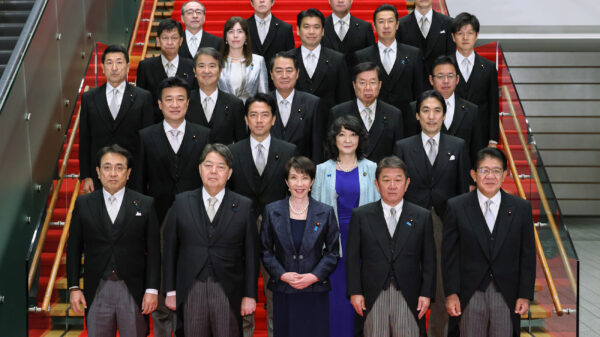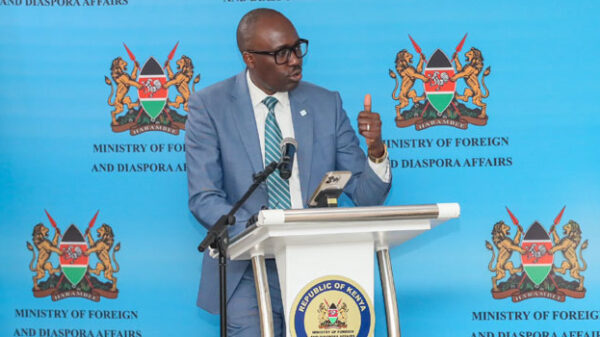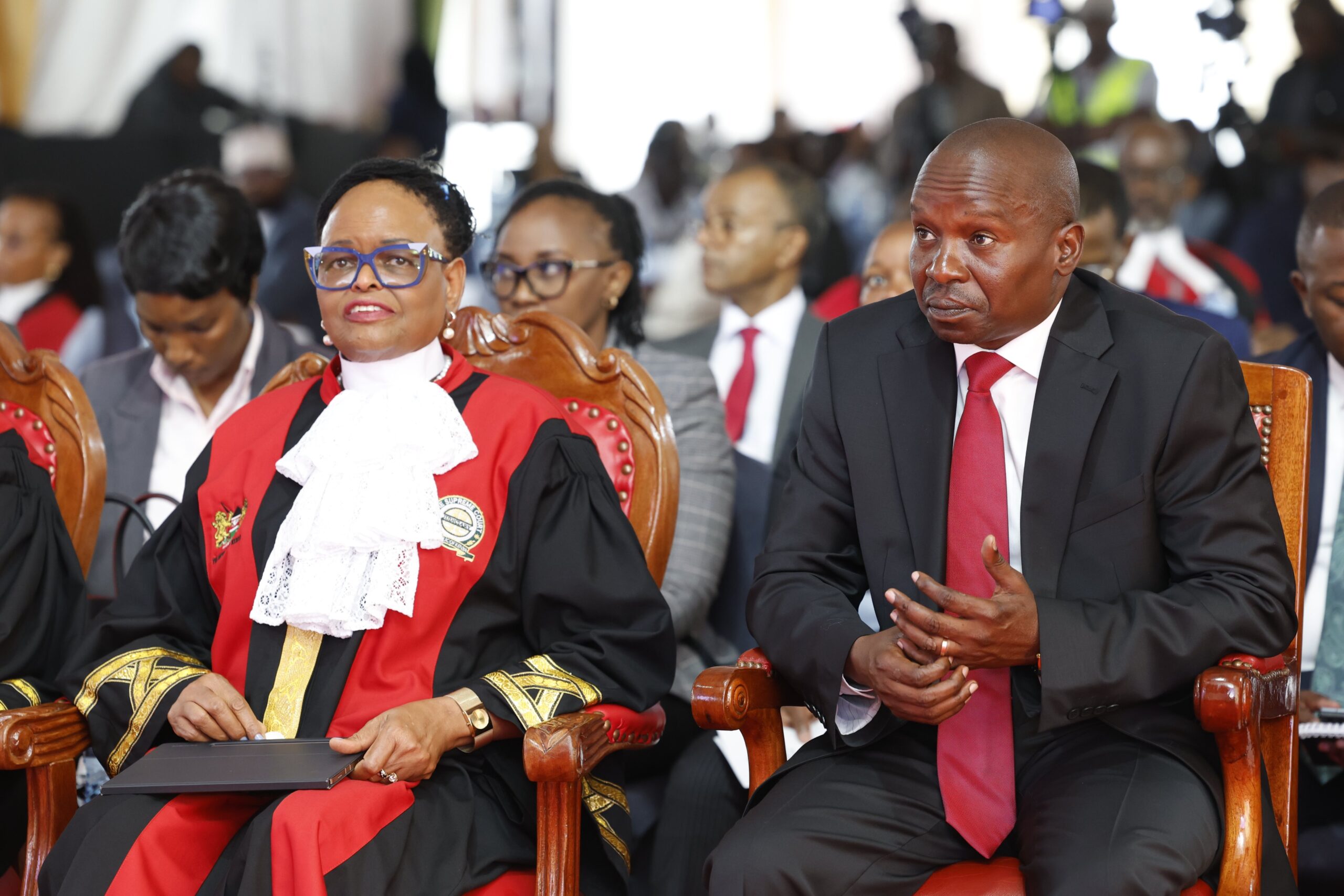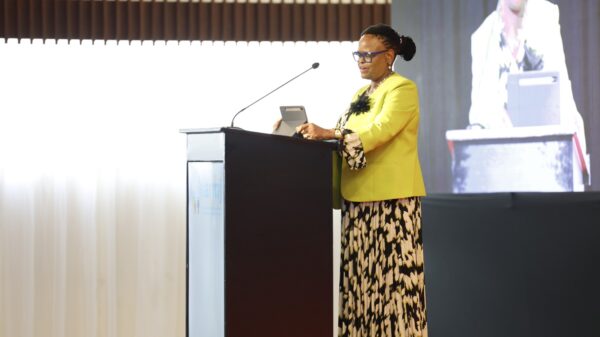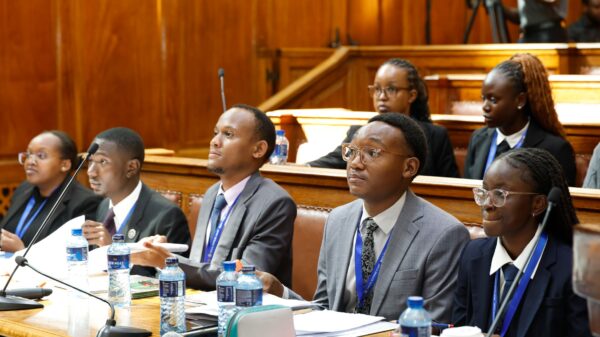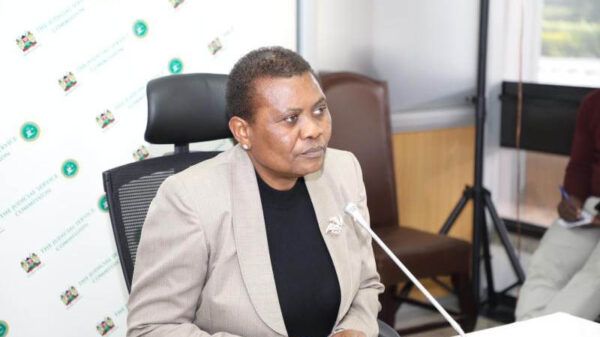NAIROBI, Kenya, Nov 21 — Deputy President Kithure Kindiki has directed Lands Cabinet Secretary Alice Wahome to allocate the Supreme Court its title deed before Christmas.
Kindiki made the announcement during the presentation of the State of the Judiciary 2023/2024 at the Supreme Court grounds on Friday.
“My sister Alice, you must give the Judiciary their title deed before Christmas this year,” Kindiki said, emphasizing the need to formalize the institution’s ownership of its premises.
The Deputy President made the directive in follow up to Chief Justice Martha Koome’s comment on the matter who referred to an ongoing process to finalise the allocation.
Koome had briefly invited Wahome to make remarks at the event during which the Cabinet Secretary said her ministry had made progress on the matter.
The event also marked the unveiling of the latest State of the Judiciary and the Administration of Justice Report (SOJAR) for the 2024/25 financial year, which highlighted one of the Judiciary’s strongest performance years in recent history.
Koome reported that the courts resolved 647,686 cases against 621,425 filed, achieving a 104 per cent case clearance rate.
“The Judiciary’s renewed commitment to efficiency, accountability, and service delivery is reflected in these results,” Koome said.
She credited initiatives such as Service Weeks, Rapid Results Initiatives, Court-Annexed Mediation, and the Mahakama Popote digital redistribution system, which reassigned 19,089 cases, resolving 14,240 of them.
The report shows the Judiciary reduced case backlogs by 30 per cent and overall pending matters by 3 per cent, with the High Court and Magistrates’ Courts recording the most notable drops. Criminal filings decreased by 8 per cent, while civil matters surged by 58 per cent, largely driven by the rapid growth of Small Claims Courts, now 40 nationwide.
Kindiki lauded the Judiciary for “upholding constitutional responsibility and institutional courage” and pledged continued support from the Executive to strengthen justice sector operations.
He also praised the Kenya Kwanza administration for its role in swearing in the highest number of Supreme Court judges over the past three years.
Wahome lauded Judiciary’s tireless efforts in resolving land-related disputes while urging close cooperation on land records.
The SOJAR report further highlighted significant digitisation efforts, including upgrades to the Judiciary Mobile App, e-filing systems, AI-assisted transcription, and the digitisation of over 322,000 case files.
Expanded court infrastructure across the country also contributed to improved access to justice.
Despite the successes, the report flagged persistent challenges, including a Sh22.12 billion funding shortfall, staffing levels at only 64 per cent of requirements, and corruption risks, which the Judiciary is addressing through strengthened integrity mechanisms, such as Court Integrity Committees and the Employee Protection Unit.
“The 104 per cent clearance rate is a turning point in dismantling systemic delays that have long impeded access to justice,” Koome said.
“Justice delayed is justice denied. These numbers represent real progress for Kenyans seeking timely resolution of disputes.”
The SOJAR Report, tabled annually as a constitutional accountability instrument, underscores the Judiciary’s strategic focus on transparency, efficiency, and deepening public trust.


